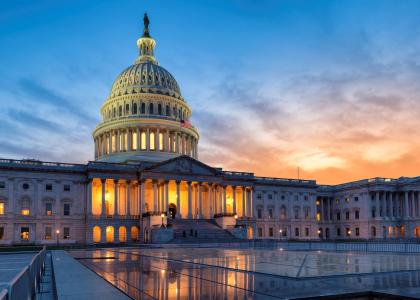Washington, DC — Energy efficiency provisions included in infrastructure legislation passed by the U.S. House of Representative Wednesday would stimulate a struggling economy while making long-term investments in reducing greenhouse gas emissions from buildings and vehicles.
“Efficiency in this bill wouldn’t just create badly-needed jobs, it would be an investment in making our buildings and vehicles more energy efficient and less costly to run for generations,” said Steven Nadel, executive director of the American Council for an Energy-Efficient Economy. “People ask what the pandemic means for the climate, and the truth is, it depends on whether or not we enact policies like these. This is an opportunity for Congress to stimulate the economy while lowering our greenhouse gas emissions for the long haul.”
The bill, dubbed the Moving America Forward Act, includes provisions to update and renew tax incentives encouraging efficient home and building construction and upgrades (though further updates are needed), extend credits for electric vehicles and chargers, and add a credit for electric trucks.
It would authorize programs to train energy efficiency workers and provide rebates to homeowners who retrofit their houses, increase funding to weatherize homes of low-income families, extend efficiency requirements in federal buildings; improve the efficiency of public schools and of other public buildings; and help local governments implement efficiency and renewable energy projects.
The transportation section of the bill includes measures to help steer some federal funding toward local projects that enable lower-carbon transportation and better mobility, and invest in a network of electric vehicle charging stations.
“More than 400,000 energy efficiency workers have filed for unemployment since the pandemic began. We could put them and many more back to work if Congress passed and funded these efficiency provisions,” said Nadel.
The bill now moves to the U.S. Senate, but Senate Majority Leader Mitch McConnell has criticized it and President Trump has threatened to veto it.


